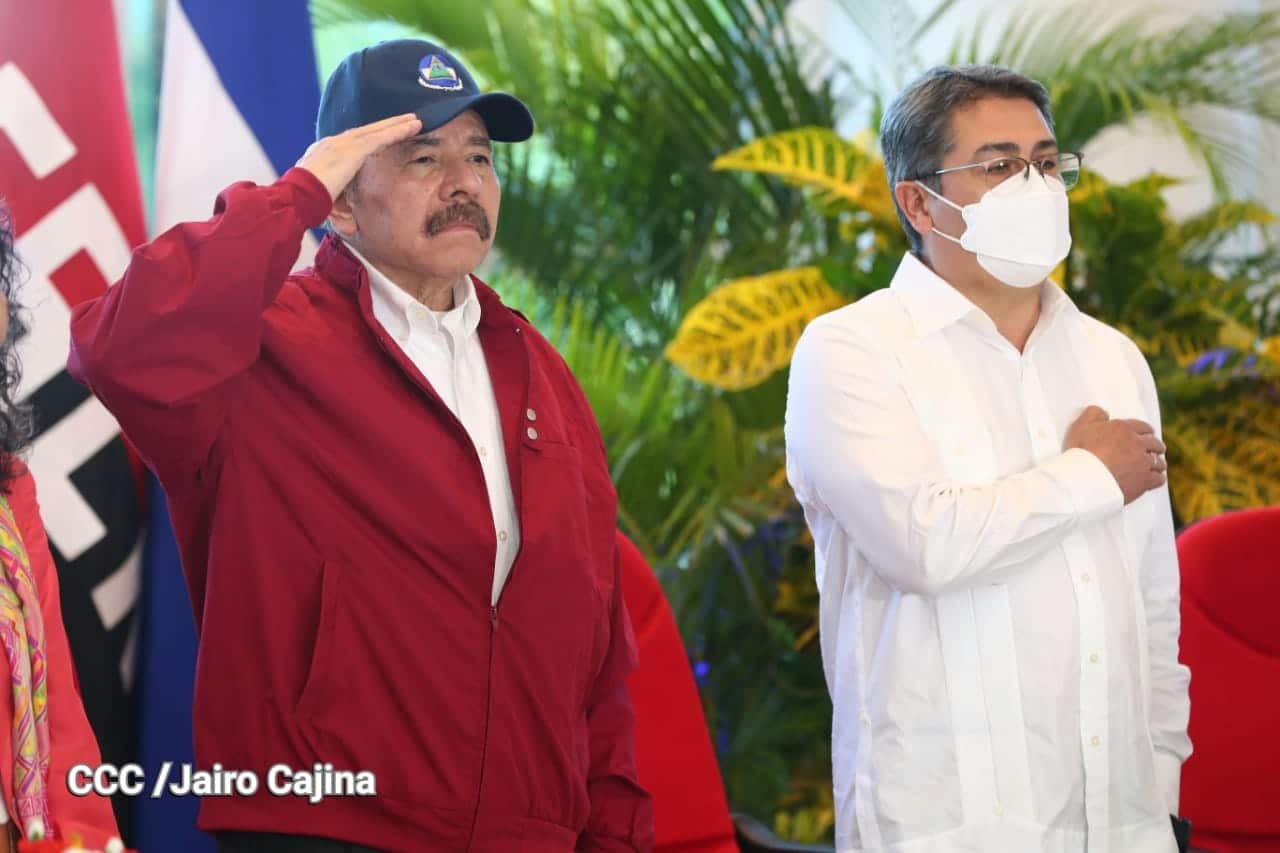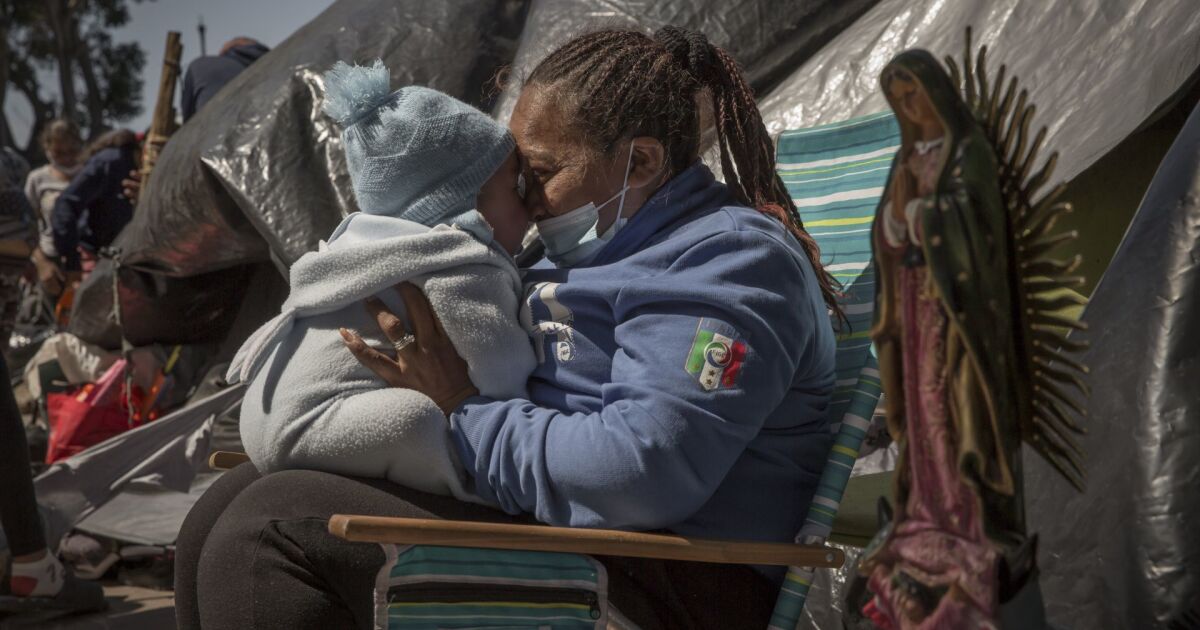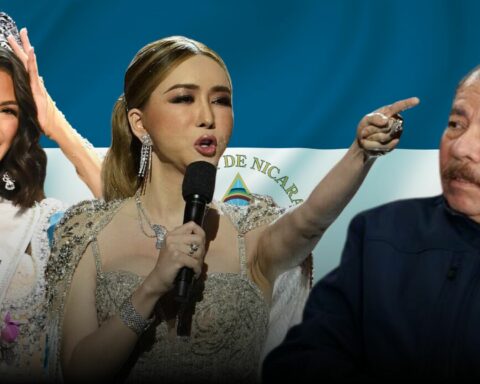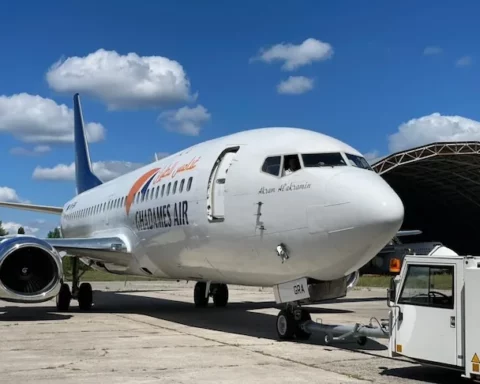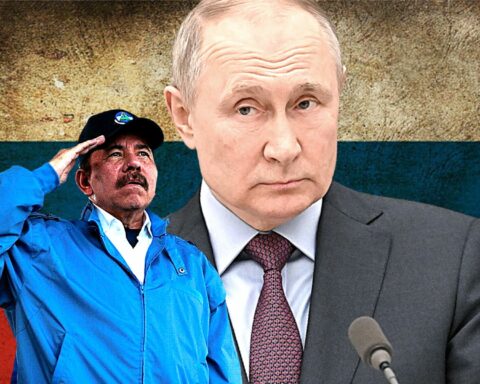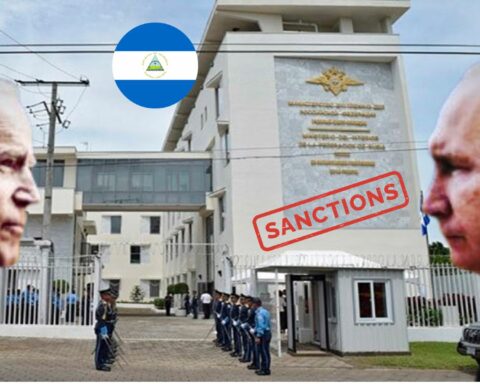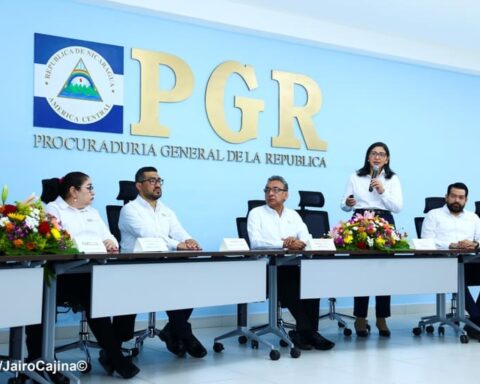The signing of a border delimitation treaty between Daniel Ortega and Honduran President Juan Orlando Hernández (JOH) has more political and diplomatic undertones for both leaders than concrete benefits for Nicaragua and Honduras, according to experts in international relations, academics and analysts. politicians consulted by CONFIDENTIAL.
Julieta Castellanos Ruiz, a Honduran sociologist and academic and who was rector between 2009 and 2017 of the National Autonomous University of Honduras, explains that the signing of the treaty has three readings from the neighboring country.
The first is that Juan Orlando Hernández would be seeking in the final stage of his Government to claim a speech of sovereignty, to cushion the political cost that his project to create the so-called ZEDE (Special Development and Employment Zones), an initiative which has been indicated as unconstitutional, a violation of Honduran sovereignty and even being a gross sale to private officials of the Catracho territory.
The second reading refers to the fact that Hernández would guarantee to have the support of Nicaragua as a place of refuge, should he have to leave his country due to the investigations he faces for possible links with organized crime.
Finally, the third reading is that the signing of this treaty is a joint diplomatic response of Nicaragua and Honduras to the political hostility towards both governments by the Salvadoran president, Nayib Bukele.
“This issue of the Zede and the management that the Government of Juan Orlando Hernández has made of these projects has brought it more protests, and not only from opponents, but from many other sectors … With the case of El Salvador, because the president Bukele has maintained comments alluding to the presidential re-election of Hernández and the allegations and problems of alleged links with drug trafficking in the ruling party, ”explained Castellanos.
This November 28, the general elections are scheduled in Honduras. The Hernández presidency has been peppered with many political scandals, mainly due to allegations of ties to international drug trafficking. His brother, Tony Hernández, is sentenced in the United States to 12 years in prison for trafficking drugs from Honduras to the North American country and in the middle of the investigations of this case, the current Honduran president is pointed out to have conspired together with his brother to execute said operations.
“This issue of the accusations of ties to drug trafficking greatly wore down the Government of Juan Orlando Hernández. That is why it has been thought that the president, faced with a probable request for extradition, is thinking of following in the footsteps of the former rulers of El Salvador (Mauricio Funes and Salvador Sánchez Cerén, accused of corruption), who have even received Nicaraguan citizenship and Since Nicaragua does not have an extradition treaty with the United States, it would be a safe place, ”added Castellanos.
Nicaragua: Refuge for fugitives from justice
Víctor Meza, former interior minister and director of the CeDocumentation Center of Honduras (CEDOH), explained that the signing of the treaty represents a conclusion to the dispute processes with El Salvador and Nicaragua brought to the International Court of Justice in The Hague.
“In the first place, Honduras gets a ratification of what the Court had already decided on its departure to the Pacific Ocean and Nicaragua defines its disputes in the Atlantic Ocean. But in addition, Honduran diplomacy has used this conjuncture with great skill to confront the growing discrepancies with the current Salvadoran government, aggravated by the adverse and even somewhat rude opinions that President Bukele has issued regarding the rulers of Nicaragua and Honduras ” he explained.
But this agreement also seeks that the Honduran ruler, who is coming out of his illegal second term, is looking for friends in the region and as Nicaragua is unfortunately becoming a refuge for fugitives from justice, he would not rule out that President Hernández seeks the complacency and warmth offered by the Nicaraguan government, ”added Meza.
The background of Honduras’s abstention from the OAS
Carlos Murillo Zamora, an expert on international relations issues and a professor at the University of Costa Rica, is emphatic in pointing out that the signing of this treaty two weeks before the voting in Nicaragua is an attempt by Ortega to legitimize the electoral fraud of this 7 November and the intentions of Juan Orlando Hernández to guarantee himself a refuge, in case of facing a judicial investigation.
“This is a spectacle for public opinion, where Ortega intends to tell the world that his neighbor is coming to his country to sign joint programs. This must be seen beyond the Honduras-Nicaragua bilateral relations, but in the background of the personal interests of the two rulers. Juan Orlando Hernández ends his presidential term soon and has serious questions. Honduras has been declared by academic and political authorities as a narco-state and it must be remembered that the brother of the Honduran president is detained in the United States and that Juan Orlando’s business is being questioned, ”he said.
Ortega and Hernández maintain a close relationship of cordiality and political recognition. The Honduran president has been the last head of government to have made official and work visits to Nicaragua, since the social protests took place in 2018, which were violently repressed by the Ortega regime.
“This must also be framed in the decision that surprised in the framework of the OAS, when Honduras abstained from the resolution on Nicaragua a few days ago. This suggests that as has happened with other leaders, next year Managua will have another illustrious resident who would be the former president of Honduras, to avoid being tried and deported, once he loses presidential immunity, “insisted Murillo Zamora.
Bukele’s reaction
Indeed, one of the first reactions to the signing of this treaty between Honduras and Nicaragua came from the Salvadoran ruler Nayib Bukele, who, according to Ortega, was invited to participate in the agreement.
“It has been difficult to work in that direction. With Honduras we have managed to unite wills, there have been difficulties with the Salvadoran brothers, with the government of El Salvador. We logically invite the Government of El Salvador to join this effort, because El Salvador is also obliged to reach an agreement with Honduras and Nicaragua to delimit the area, “said Ortega during the signing of the agreement, this October 27.
On the night of that same Wednesday, Bukele spoke about the signing of this agreement through his Twitter account, making fun of the matter.
What do you think @dw_espanol, @nytimes, @washingtonpost and their related media would be saying, if I had signed this same identical geopolitical treaty with Ortega? Exactly. What were the Democrats saying in the White House? Exactly, ”he wrote. It is the only official statement from El Salvador on this issue, so far.
What do you think they were saying @dw_espanol, @nytimes, @washingtonpost and its related media, if I had signed this same identical geopolitical treaty with Ortega?
Exactly.
What were the Democrats saying in the White House?
Exact ? https://t.co/GOsLmm5qvx
– Nayib Bukele ?? (@nayibbukele) October 28, 2021
JOH’s political harmony with Ortega
In the last session of the Permanent Council of the Organization of American States (OAS), held on October 20, Honduras and Guatemala were the nations that abstained from voting on a resolution that called for the release of political prisoners and the participation of the organism as electoral observer.
“It was a meaningless presidential meeting, days before the elections in Nicaragua and a few days after the vote in the OAS in Honduras. The moment in which this signature is given is key here. It is not only an agreement to delimit borders, which is not necessary, because the borders have already been delimited by the resolution of the International Court of Justice. It would have been different if they announced a binational and cross-border development program, ”added Murillo Zamora.
While Guatemala and Honduras neglected to pronounce on the crisis in Nicaragua, the presidents of Costa Rica, Carlos Alvarado; from Panama, Laurentino Cortizo, and from the Dominican Republic, Luis Abinader, expressed their concern about “the lack of guarantees” that exist in Nicaragua so that the elections on November 7 are transparent, within the framework of the creation of the Alliance for the Strengthening of Democratic Institutionality, which brings together these Governments.
The presidents of the Alliance also expressed their “deep concern at the critical political situation and the deterioration of human rights in Nicaragua” and at the lack of guarantees. They also urged the Nicaraguan government to immediately release the political prisoners and the “restitution of all civil and political rights,” during a meeting held by the leaders on October 21, one day after the vote at the OAS.
Vaccination of Nicaraguans in Honduras
The political analyst and former Nicaraguan opposition deputy Eliseo Núñez Morales, agrees with Murillo Zamora on the irrelevance of signing the treaty, given that the points on border delimitation established therein were those that were decided in the International Court of Justice in The Hague, whose last ruling on the matter was on October 8, 2007.
However, Núñez considers that another background of this meeting between the two leaders is the wave of Nicaraguans who are going to get vaccinated in Honduras.
“The visit of the Honduran president is due to give an image blow in this situation that has escalated on the vaccination of Nicaraguans in Honduras. What they signed doesn’t really matter. That was very different from what Ortega and Juan Orlando Hernández wanted: to give an image that they are together and that Ortega managed these vaccines with the Honduran government, “he said.
The Honduran government reported that, in recent days, about 35,000 Nicaraguans were vaccinated with the biologics Pfizer and Moderna.

